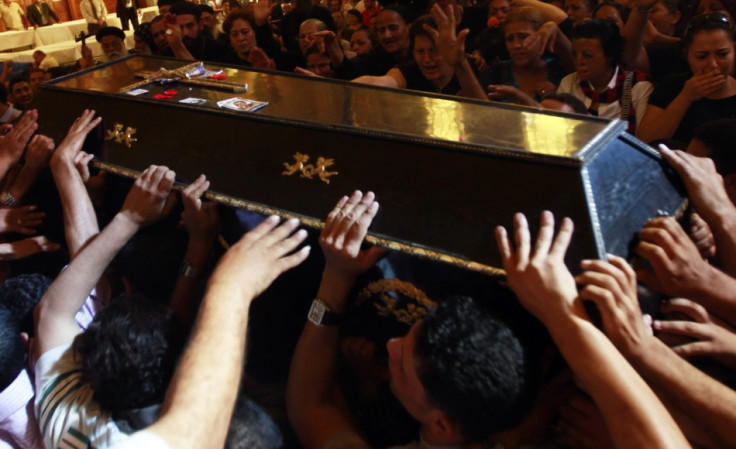Egypt: Threat of a Second Revolution Mounts After Violence Against Coptic Christians

Egypt's finance minister resigned on Tuesday, becoming the first high-level official to leave in the aftermath of the deadly clashes that emerged between Coptic Christian and Muslim demonstrators and military forces, with many accusing the military council of being responsible of what has been called in the Egyptian press the "Maspero massacre" -- a reference to the Cairo district where the events took place.
Revolting against state-owned media coverage of the incident, Tuesday, Egyptians papers called the confrontation between the demonstrators and the security forces a "massacre," "tragedy," "bloodbath" and "conspiracy".
Hazem el-Beblawi, the finance minister quit after only three months in office and his resignation could prove a turning point for the 'revolution', showing cracks within the transitional government, which has been widely criticised by Egyptians.
El-Beblawi is the second finance minister to leave the government, and the country's official Middle East News Agency, which reported his departure, has not provided information regarding his reasons for leaving.
His resignation came a day after thousands of Coptic Christian mourners gathered at the country's largest cathedral to commemorate the death of the demonstrators killed on Sunday.
While reports from state-owned media said the demonstrators were violent aggressors, eyewitness accounts of the events proved different, with critics of the power saying the authorities tried to cover up the brutal crackdown of the security forces on protests that started off as peaceful.
Public opinion of the transitional council led by Tantawi, Mubarak's former close friend, was already poor after the military deferred handover of power to civilian rules several times and refused to put an end to decades of emergency rules.
Witnesses, victims and doctors have now accused the security forces of driving armoured vehicles into the crowds during the Sunday protests, and firing live ammunition, killing as many as six people.
Doctors and Interior Ministry officials said bullet wounds accounted for most of the deaths, including that of Mina Daniel, a young political activist a doctor said had been shot in the shoulder and leg.
The Health ministry also confirmed that more than 300 people had been injured in the clashes.
The military council has failed to explain why shots were fired or why military vehicles ran over demonstrators, only issuing a statement on state television, describing the clashes as "unfortunate events" that "transformed peaceful protests to bloody ones" and expressing "deepest condolences to the families of the victims."
Authorities also insisted they would reject "attempts to cause a rift between the armed forces and the Egyptian people."
Realising the extent of the backlash, the military also announced it would set up a fact-finding committee and launch an investigation and into the violence, and reports suggest that 15 suspects are being prosecuted in military courts for instigating the riots.
However with the papers and the people now in shock over the alleged violence of the security forces, which is only set to bring back dreadful memories of the lives sacrificed during the revolution, the Supreme Military Council will not be able to hang on to power for much longer before popular discontent threatens to create a second revolution.
© Copyright IBTimes 2025. All rights reserved.





















